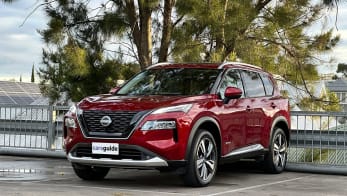When it comes to selling your car, there are a few things that can make it more difficult - missing wheels, missing keys, the fear that you'll miss it too much when it's gone - but right at the top of the list would be not actually owning it.
Sure, if the car you drive is legally yours, selling is fairly simple - you simply list it on Autotrader.com.au and wait to be flooded with buyers, perhaps putting on your slickest suit so you can play at being a car dealer for the weekend.
If you owe any money on your car, or it's the subject of some kind of financing arrangement, however, things can get complicated. Selling a financed car involves a juggling act aimed at keeping three parties happy: you, your lender and your buyer.
But if you keep a clear head, prepare ahead of time and remain honest with both your customers and your lender, you should be able to sell your financed car without too many horrific headaches.
So what's tricky about selling a financed car?
It all comes down to how car loans work. A standard car loan uses the car as a safeguard, in case you can't make repayments. This is known as a secured loan, where the vehicle itself is the security. The idea is that if you can't meet the loan repayments, the lender can repossess the car and sell it to recoup costs.
The problem with selling a financed car lies in how secured car loans are organised. The loan is applied to the car, not the buyer. It's the buyer's responsibility to repay the debt but, because the car forms the basis of the secured loan, the outstanding balance will always apply against the car itself. This is called an encumbrance, which sounds like some kind of exotic cucumber, but isn't.
Is your car encumbered?
Your car may not have money owing against it, even if you borrowed money to fund its purchase in the first place, so you might not be encumbered.
For instance, if you have a mortgage and have redrawn against it, the house is the security, not the car. If you bought with a credit card or drew from an unsecured personal loan, the lender can't use your possessions as security, so your vehicle is unencumbered. This means that the loan will apply to you, not your beloved but soon to be departed vehicle.
Personal loans and credit cards have higher interest rates than secured loans for this exact reason. Without a large-ticket item to use as security, there's a larger risk the bank won't get its money repaid in full. The larger the bank's perceived risk, the higher the interest rate.
What are your options?
There are a few options to sell, but you are obliged to prepare beforehand, as loan-rating service CANSTAR's Justine Davies explains.
"If you have decided to sell a financed car, you'll need to talk to your bank about how you are going to pay that car loan off," she says.
"If you're going to pay your car loan out early – which you'll have to do if you are selling your car – then be aware that you'll have to pay some fees.
"The costs will differ between lenders but there may be an administration fee, a break fee and a cost-recovery fee, so check what these costs will be before you decide to sell."
In a lot of cases, you'll need the sale price to go directly to your lender to pay the outstanding balance on your loan.
"If you don't have the cash to pay it off, you can organise to complete the sale transaction at the offices of your financial institution," Davies says.
"That way the money from the sale can go straight from the buyer to the bank."
In cases where the loan amount is more than the car's value, you can repay the gap between the sale value and the debt yourself. The bank will then lift the encumbrance from the car, leaving the new buyer with a clear title.
If you have other lending options available to you, it can be a good idea to remove the car's encumbrance all together before trying to sell. You can redraw against your mortgage, take out an unsecured loan or get a cash advance from your credit account.
However, each of these options has a drawback. Unsecured loans and cash advances carry higher interest rates than secured loans, which can leave you handing even more back to the bank. Mortgages can take decades to pay off, meaning that a small redraw today can cost significantly over the life of the mortgage, although home-loan rates are historically low at present.
Always be upfront about any money outstanding on the car
If you're selling your car with a mind to upgrading, rather than selling outright, dealers offer a mostly hassle-free way to upgrade. Because dealerships make their money on finance as well as car margins, they'll be only too happy to organise finance to pay out your car's outstanding balance and cover the cost of upgrading.
A similar deal applies if you're downsizing to a less expensive car, but finance can be tricky in this regard. If your finance amount is, say, $40,000, a $25,000 car won't be enough security to obtain a secured loan. In this case, you'll need to look to other avenues for finance.
Honesty is the best policy
If you're trying to sell a car that is encumbered, it shouldn't put buyers off, as long as you're upfront about the situation. A good car, with low kilometres, is still a bargain everybody wants.
Honesty is the best approach, as Davies explains. "Always be upfront about any money outstanding on the car," she says.
"The buyer will most likely do a public search on the car via the Personal Property Securities Register and find out anyway, so it's far better of you tell them first and let them know how you'll be paying that loan off."



.jpg)


 copy.jpg)
.jpg)

.jpg)
.jpg)


.jpg)
.jpg)
.jpg)




Comments